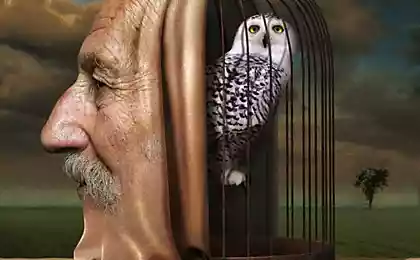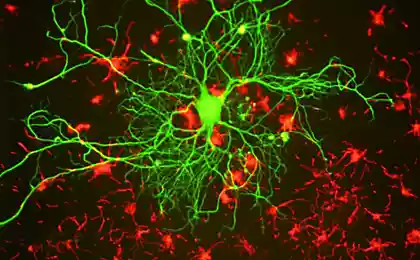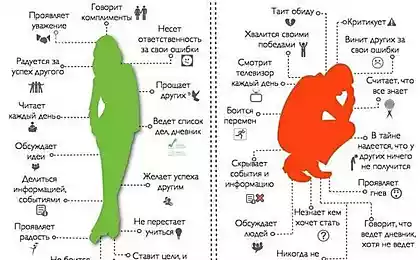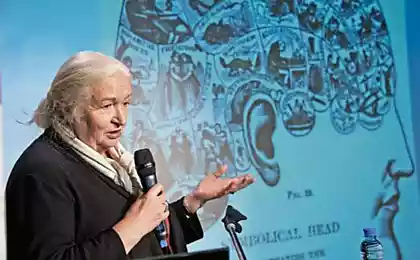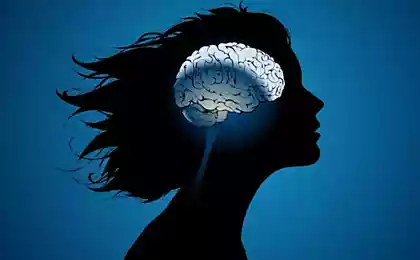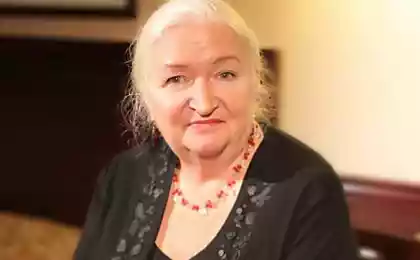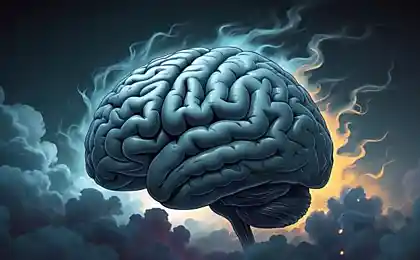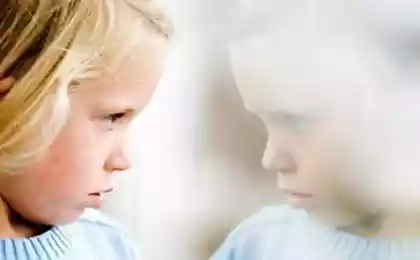467
6 unexpected facts about the brain and creativity
Wandering around, empty dreams, grief and loss — all these things associated with something bad. But in fact, they can positively affect our creative efforts. And this is just one of the surprises that it presents a study of the creative abilities of the brain.
Scott Kaufman and Carolyn Gregor in the book "Wired to Create: Unraveling the Mysteries of the Creative Mind" describes a number of such discoveries, it is highly non-obvious, but very useful in practice.
Here are some of the most notable examples.

1. 72% of people experience a flash of inspiration when they are in the shower
No, it's not a cliché: to stand under the stream of hot water and allow the brain to relax is useful in the creative sense. Gregor and Kaufman show that the isolation in which we find ourselves, when take a shower, becomes a great incubator for ideas. In a study that Kaufman held in 2014, 72% of respondents from the different countries of the world admitted that they were in the shower come up with new ideas.
2. Victory introverts and the power of loneliness
How productively we work in a team, nothing compares with the moments when we work — and think — alone. More creative imagination associated with parts of the brain function better when no one is around. The neuroscientists call this "constructive internal reflection", which is essential for generating ideas and creative finds. When you subtract the volume of the external world, the brain more successfully builds a certain connection, to form memories and process information.
3. The experiments make us more creative
Logically, the willingness to test new ideas is correlated with creativity. The Beatles music changed when they started to experiment with the new technology of recording and new tools. And neuroscientists have established a clear link between openness to new experience and creative thinking. A new study is associated with the release of the neurotransmitter dopamine, which plays a useful role in motivation and learning, "encourages psychological flexibility, a penchant for research, flexible interaction with new things," the authors write. A lot of studies that analyzed Kaufman and Gregor, show that the desire to expand the experience can be a critical factor in predicting creative achievements.
4. Trauma pushes creative horizons
Frida Kahlo, Truman Capote, Robin Williams, Jerry Garcia, many artists in my life have experienced great loss or injury which seriously affected their creative pursuits. It is not a coincidence: psychologists call this phenomenon "post-traumatic growth." After a serious loss of brain starts to function more creatively, trying to "rebuild" life in General, when our ideas, priorities and ways of thinking vary greatly. Posttraumatic growth is the subject of hundreds of studies. In particular, work published in 2004 in the Journal of Traumatic Stress, showed that 70% of survivors of traumatic experience, then experienced positive psychological changes.

5. Head in the clouds is good for the brain
During an important meeting on the budget of your project to get distracted and float away somewhere in my thoughts is not worth it. But in fact, to daydream is very useful for creativity. Imagine the home of your dreams or relive a pleasant summer vacation, sitting at office Desk, it seems to be unproductive. But at this time in the head there is a lot of interesting. Studies show that these moments — a kind of incubation process, which enhances creative thinking, long term thinking and consciousness. Psychologists several decades exploring these "constructive daydreaming" and show that they play a key role for the development of imagination and creative work.
6. The best ideas are ridiculed at first
In history many examples of discoveries and ideas that were initially rejected and then accepted as the norm. The Hungarian physician Ignaz Semmelweis was the first lost his job, and then got into a mental hospital — and he just assumed that infection can spread through germs on the hands of the doctors in the hospital. In the nineteenth century, this idea seemed radical and insane. This resistance to new, innovative ideas has a clear psychological basis and still. In a paper published in the journal Scientometrics in 2009, explores examples of ideas and discoveries, won the Nobel prize, which the scientific community at first resisted. It is a systemic phenomenon — scepticism to theories that challenge the existing paradigm.
Also interesting: Tony Robbins: Words can change the brain
Intuition is always the FIRST THOUGHT!
Psychologists at Cornell University conducted a study showing that we have a hidden prejudice against unusual ideas. This tendency is embedded in us quite deeply. Scientists say that although as a child we have non-conformist tendencies, school discipline and rote learning often corrode them from us. How to write Kaufman and Gregor, "studies show that teachers prefer students that demonstrate less creativity".published
P. S. And remember, just changing your mind — together we change the world! ©
Source: ideanomics.ru/articles/7930
Scott Kaufman and Carolyn Gregor in the book "Wired to Create: Unraveling the Mysteries of the Creative Mind" describes a number of such discoveries, it is highly non-obvious, but very useful in practice.
Here are some of the most notable examples.

1. 72% of people experience a flash of inspiration when they are in the shower
No, it's not a cliché: to stand under the stream of hot water and allow the brain to relax is useful in the creative sense. Gregor and Kaufman show that the isolation in which we find ourselves, when take a shower, becomes a great incubator for ideas. In a study that Kaufman held in 2014, 72% of respondents from the different countries of the world admitted that they were in the shower come up with new ideas.
2. Victory introverts and the power of loneliness
How productively we work in a team, nothing compares with the moments when we work — and think — alone. More creative imagination associated with parts of the brain function better when no one is around. The neuroscientists call this "constructive internal reflection", which is essential for generating ideas and creative finds. When you subtract the volume of the external world, the brain more successfully builds a certain connection, to form memories and process information.
3. The experiments make us more creative
Logically, the willingness to test new ideas is correlated with creativity. The Beatles music changed when they started to experiment with the new technology of recording and new tools. And neuroscientists have established a clear link between openness to new experience and creative thinking. A new study is associated with the release of the neurotransmitter dopamine, which plays a useful role in motivation and learning, "encourages psychological flexibility, a penchant for research, flexible interaction with new things," the authors write. A lot of studies that analyzed Kaufman and Gregor, show that the desire to expand the experience can be a critical factor in predicting creative achievements.
4. Trauma pushes creative horizons
Frida Kahlo, Truman Capote, Robin Williams, Jerry Garcia, many artists in my life have experienced great loss or injury which seriously affected their creative pursuits. It is not a coincidence: psychologists call this phenomenon "post-traumatic growth." After a serious loss of brain starts to function more creatively, trying to "rebuild" life in General, when our ideas, priorities and ways of thinking vary greatly. Posttraumatic growth is the subject of hundreds of studies. In particular, work published in 2004 in the Journal of Traumatic Stress, showed that 70% of survivors of traumatic experience, then experienced positive psychological changes.

5. Head in the clouds is good for the brain
During an important meeting on the budget of your project to get distracted and float away somewhere in my thoughts is not worth it. But in fact, to daydream is very useful for creativity. Imagine the home of your dreams or relive a pleasant summer vacation, sitting at office Desk, it seems to be unproductive. But at this time in the head there is a lot of interesting. Studies show that these moments — a kind of incubation process, which enhances creative thinking, long term thinking and consciousness. Psychologists several decades exploring these "constructive daydreaming" and show that they play a key role for the development of imagination and creative work.
6. The best ideas are ridiculed at first
In history many examples of discoveries and ideas that were initially rejected and then accepted as the norm. The Hungarian physician Ignaz Semmelweis was the first lost his job, and then got into a mental hospital — and he just assumed that infection can spread through germs on the hands of the doctors in the hospital. In the nineteenth century, this idea seemed radical and insane. This resistance to new, innovative ideas has a clear psychological basis and still. In a paper published in the journal Scientometrics in 2009, explores examples of ideas and discoveries, won the Nobel prize, which the scientific community at first resisted. It is a systemic phenomenon — scepticism to theories that challenge the existing paradigm.
Also interesting: Tony Robbins: Words can change the brain
Intuition is always the FIRST THOUGHT!
Psychologists at Cornell University conducted a study showing that we have a hidden prejudice against unusual ideas. This tendency is embedded in us quite deeply. Scientists say that although as a child we have non-conformist tendencies, school discipline and rote learning often corrode them from us. How to write Kaufman and Gregor, "studies show that teachers prefer students that demonstrate less creativity".published
P. S. And remember, just changing your mind — together we change the world! ©
Source: ideanomics.ru/articles/7930
The SECRET of charismatic personalities
Silver nanofilm for flexible solar panels and "electronic skin"






